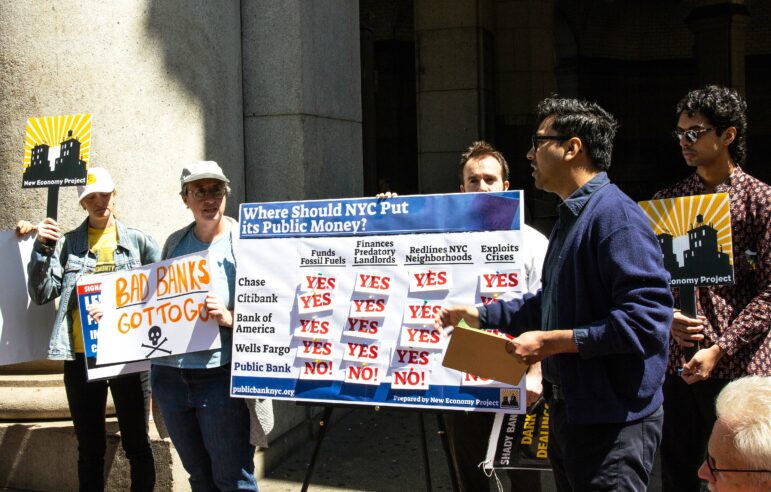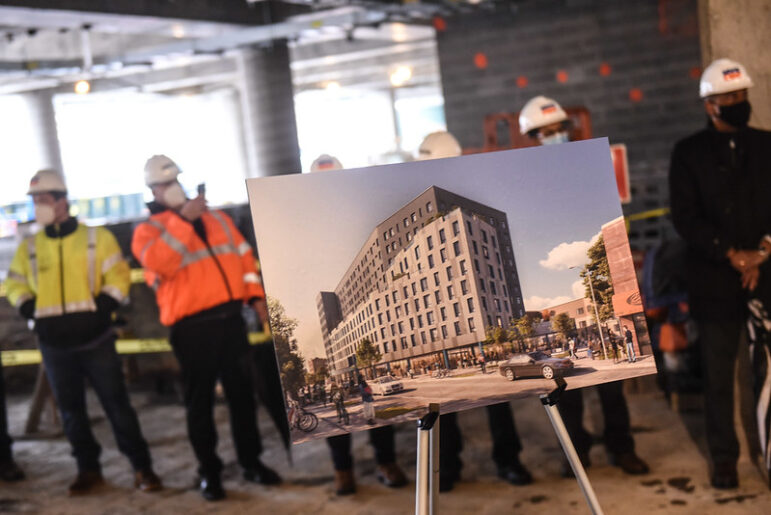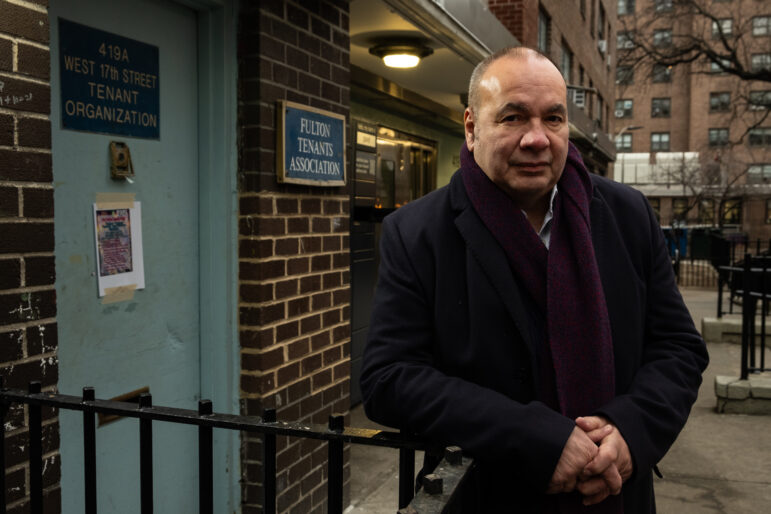Photo by: Jarrett Murphy
Many libraries have stopped keeping historical records of what patrons read, but names are often still associated with overdue items and fines.
“[REDACTED] prevented plaintiffs from criticizing the government, despite the government’s argument to the contrary. Specifically, [REDACTED] prevented plaintiffs from criticizing [REDACTED]”
So reads a typical, heavily redacted passage from the lawsuit known as John Doe v. Ashcroft (and since then known as Doe v. Gonzales and Doe v. Mukasey), filed in 2004 by the president of an Internet service provider who received a national security letter from the FBI asking for information. It’s not known exactly what the letter was seeking because the request came with a gag order attached—the recipient was barred from acknowledging receiving the letter, let alone discussing what it asked for or who the subject was. It’s not even clear where the ISP is based, and John Doe’s lawyers won’t risk imprisonment by saying where he’s from. Since Doe’s case came before the U.S. District Court for the Southern District of New York, however, it’s highly likely that John Doe’s business is based in Bronx, Dutchess, New York, Orange, Putnam, Rockland, Sullivan or Westchester County.
Federal agents have been empowered to distribute national security letters (NSLs) for years. NSLs can’t seek the content of communications. But they can demand records like telephone bills, e-mail and telephone subscriber information, financial records and credit reports. The USA Patriot Act of 2001 expanded the use of NSLs—one of several law enforcement tools that the Patriot Act upgraded. Some of those tools—like the right of federal law enforcement agents to obtain library records—have been controversial, although the true impact of the Patriot Act is difficult to discern, in no small part because of the secrecy surrounding its use.
Section 215 of the Patriot Act, for example, amended the Foreign Intelligence Surveillance Act of 1978 to allow the FBI—after review by a secret court—to seek a broader range of “tangible items” like “books, records, papers, documents, and other items” from a wider array of institutions than previously allowed. It’s Section 215 that led Patriot Act critics to worry that the FBI would seek library records. The bureau has indeed sought information from libraries under Section 215, according to a 2007 report by the Justice Department inspector general. The exact number of requests that were sent to libraries was redacted, but the inspector general’s reports indicate that, overall, Section 215 requests are fairly rare (there were 215 nationwide from 2003 to 2006)
National security letters—which FBI field offices can issue on their own, without court oversight—are much more common. From 8,500 requests in 2000, the FBI’s use jumped more than sixfold to 56,000 in 2004 and hovered around the 50,000 mark in 2005 and 2006. The expansion may have been even greater than that: The DOJ inspector general believes the FBI substantially underreports the number of letters it issues. And a single letter can gather a large volume of information: One investigation involved nine letters that collected information on 11,100 phone numbers. Americans are increasingly the FBIs target: The percentage of letters seeking records of U.S. citizens or residents as opposed to foreigners rose from 39 percent in 2003 to 57 percent in 2006.
FBI agents told the inspector general that NSLs were their “bread and butter,” used to collect evidence, lay the groundwork for a court order for more-intrusive surveillance or eliminate subjects from suspicion. But it doesn’t always go according to Hoyle. The FBI itself identified 26 cases from 2003 and 2005 where either its agents misused their NSL power or the person who received the letter provided more information than required. The inspector general found a far higher rate of misuse: In the 77 case files it examined, the inspector found 22 cases where the letters or their response went beyond the FBI’s legal reach. Sometimes the FBI didn’t even bother to use an NSL, which does require at least some supervisory safeguards. The bureau, for example, sent 739 requests to three phone companies asking for billing records on 3,000 phone numbers without issuing a single NSL. This use of so-called exigent letters troubled the inspector general. “Many were not issued in exigent circumstances,” he found, and many of the letters may have falsely claimed that subpoenas were being sought.
The inspector general didn’t reveal which field offices issued NSLs but did report that New York, Chicago, Philadelphia and San Francisco issued the most (a combined 293). The Doe case gives some sense of what one NSL recipient felt.
“I am the president and sole employee of [REDACTED], which is an Internet access and consulting business incorporated and located in [REDACTED],” Doe wrote in one court filing. Doe described his or her business and clients. “Some of those clients are individuals and political associations that engage in controversial political speech,” Doe wrote. Because of the gag order, Doe continued: “I am not sure whether I can even tell people that I am involved in a lawsuit…I have steered clear of numerous topics of conversations…I have to make up excuses about where I am going when I have to meet my lawyer.”
His lawyer, from the American Civil Liberties Union, also lamented the government’s demand for secrecy, saying that the U.S. Attorney’s office even tried to redact from legal papers a brief quote from a 1972 Supreme Court decision involving civil liberties, as well as a description of a conversation between ACLU Executive Director Anthony Romero and a donor—an anecdote in which, it turns out, Romero described how he had to evade the donor’s questions about the Doe lawsuit.
In 2004, District Judge Vincent Marrero ruled that the Patriot Act’s gag provision was unconstitutional. The government appealed. The Doe case was combined with another, involving an unnamed Connecticut librarian who’d also received an NSL. While the case was on appeal, Congress revised the Patriot Act to include new constraints on FBI records requests, so the appeals court sent the cases back to the lower courts. In the Connecticut case, the FBI withdrew the NSL and lifted the gag; it turns out the feds wanted to know who was using a particular IP address for a 45-minute period in February 2005. In the case of the mystery ISP, the feds withdrew the NSL but kept the gag. Last year, Judge Marrero again found the gag order to be unconstitutional. The case is now on appeal.
Despite the revisions to the Patriot Act, librarians are still worried, says Deborah Caldwell-Stone, the deputy director of the Office for Intellectual freedom at the American Library Association. “We really don’t believe that our concerns have truly been addressed by the changes in the law,” Caldwell-Stone says. “The fact that this would become a form of abuse has been seen.”
But their worries aren’t new. In the 1980s, the FBI ran a secret initiative called the Library Awareness Program that sought library records without warrants. That led many libraries to change their policies; many stopped retaining all historical records of what people had checked out. However, there still could be records of who last took out an item and who has overdue books.
So, contrary to some of the alarms sounded about the Patriot Act, the FBI’s power to learn what you’re reading is constrained by library record-keeping safeguards. A more likely target for the bureau is the public access computer terminals that many libraries host. That focus has an economic dimension, since poor people are more likely to use those computers. As the ALA said in a brief for the Connecticut NSL case, “The effect of this policy will undermine free speech by discouraging individuals from speaking and receiving information and from doing so at public libraries. It will have a disproportionate effect on those who are unable to obtain Internet access.”
Whatever the feds are looking for, your local librarian still might face prison time for telling the world about an FBI request. Asked if the New York Public Library had received any national security letters or Section 215 requests, NYPL spokeswoman Gayle Snible could only say, “Both before and after September 11, 2001, the library has received subpoenas and other requests for information from time to time from law enforcement agencies as well as from private litigants.”








